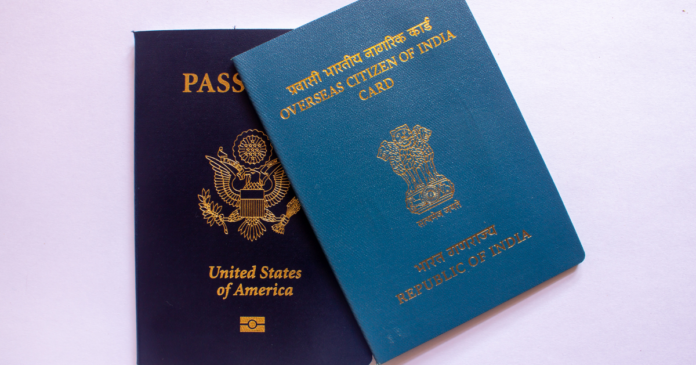As a CERTIFIED FINANCIAL PLANNER with decades of experience advising NRIs, entrepreneurs, professionals, and retirees, I’ve come across many intriguing cases. But few spark as much debate as the strategy of shifting your residency to a tax-friendly country—just to escape paying taxes in India.
Recently, a case in the Income Tax Appellate Tribunal (ITAT) caught my attention. A Singapore-based NRI had invested in Indian mutual funds and claimed capital gains exemption under the India-Singapore DTAA (Double Taxation Avoidance Agreement). The ruling went in her favor, and she paid zero tax. Naturally, this raised eyebrows, curiosity, and questions from many of my NRI clients.
Does this mean that by simply moving to countries like Singapore or UAE, one can legally avoid paying taxes on mutual fund gains in India?
The answer is layered—and I want to break it down with clarity, caution, and context.
⸻
The Law Is on Your Side—But Only If You’re Eligible

Let me start with the law itself. India has signed DTAAs with several countries, including Singapore, UAE, Mauritius, Netherlands, Portugal, and Spain. Many of these treaties contain a special “residual clause” in Article 13, which states that capital gains on certain assets (excluding immovable property and shares) can be taxed only in the country of residence of the investor.
Now, here’s the key point that the ITAT reinforced: Mutual fund units are not considered shares. They’re actually units issued by trusts, not companies. So, under the residual clause, capital gains on these units are not taxable in India if the NRI resides in a country that doesn’t impose capital gains tax—like Singapore or UAE.
The woman in question had declared over ₹1.35 crore in mutual fund gains. Despite an initial rejection by the I-T officer in India, the tribunal ruled in her favor. The reason? She met the requirements of the DTAA and provided all necessary documentation.
⸻
But There’s a Catch—Or Several

Before you start planning a move to a new country with zero capital gains tax, there are some harsh truths you need to be aware of.
I often tell my clients: Saving taxes should not be the only reason to shift abroad. There are stringent conditions and serious implications you must consider.
Let’s start with residency rules. In most cases, you must stay in the foreign country for at least 183 days in a calendar year to qualify as a resident under DTAA rules. And more importantly, your residency must be valid at the time of redemption, not just when you invested.
Another essential step is obtaining a Tax Residency Certificate (TRC) from the tax authority of your host country. In countries like UAE, this certificate is not always easy to get, and it’s often valid only for the previous financial year—not forward-looking. This can make it hard to claim tax exemptions in advance.
And then there’s Form 10F, an Indian declaration that needs to be filed electronically to facilitate your TDS exemption.
⸻
Here’s What I Advise All My NRI Clients to Do

If you genuinely live and work in a DTAA-friendly country and meet the 183-day rule, you absolutely should leverage this provision. But there’s a step-by-step compliance checklist that I walk all my clients through:
1. Update KYC with NRI Status: Don’t forget to inform mutual fund houses and change your status to NRI.
2. Use NRE or NRO Accounts: For repatriable investments, always use your NRE account. If you use your NRO account, your limit is $1 million per financial year.
3. Obtain a Tax Residency Certificate (TRC): Apply with your local tax authority in the host country.
4. File Form 10F: This is necessary to claim benefits under India’s tax treaties.
5. Maintain Documentary Evidence: Keep income statements, TIN, address proof, and proof of physical stay handy.
Only when all these conditions are met can you confidently claim capital gains exemption. Otherwise, the Taxman may come knocking.
⸻
But Wait—There’s GAAR
The Indian Income Tax Department has tools like the General Anti Avoidance Rule (GAAR) to check for tax avoidance. If your claim seems fishy—for example, if you’re just flying in and out to clock the minimum days—your case can be challenged.
GAAR is typically invoked if tax benefits exceed ₹3 crore, and there is evidence of intent to avoid tax. So, if your relocation lacks genuine economic or personal reasons, it could backfire badly.
One of my clients, an NRI based in the UAE, tried timing his mutual fund redemptions to save tax. He assumed just staying the required 183 days would do the trick. But because his UAE TRC wasn’t valid for the current year, his mutual fund company still deducted TDS. We had to go through the long process of filing returns, showing documentary evidence, and eventually, the refund came through—but after several stressful months.
⸻
Not All Mutual Fund Houses Support This
Another surprise for many is that not all mutual fund houses in India facilitate DTAA-based tax exemptions. Only select AMCs are proactive in implementing the rules. So, even if you’re compliant, your exemption might not be processed without follow-up.
This is why I always advise involving a financial planner who can coordinate with the fund house, file the right forms, and ensure timely documentation.
⸻
What About the USA, UK, or Australia?
Clients often ask me, “I live in Canada (or the UK/USA). Can I claim the same benefits?”
The unfortunate truth: No.
Although India has DTAAs with these countries, the residual clause benefit doesn’t apply. This exemption only exists in treaties with select nations. For residents in these countries, mutual fund gains in India are still taxable, often both in India and their country of residence (with credit available).
⸻
Debt Funds: A Powerful NRI Tool
Debt mutual funds in India are typically tax-inefficient for resident investors because they are taxed at slab rates. But for NRIs living in DTAA-exempt countries, these become powerful, tax-free investment vehicles.
They can even replace NRE fixed deposits, which offer tax-free interest but lower returns. Several of my UAE-based clients have switched from NRE FDs to high-quality debt funds to gain higher post-tax returns with zero tax leakage.
⸻
Final Word: Don’t Relocate Just for Tax Benefits

I always tell my clients: “Relocating your life just to save taxes is like selling your house to avoid a property tax bill.”
There are health, emotional, family, and regulatory consequences. What if laws change? What if the host country modifies TRC rules? Or what if India renegotiates its DTAA?
All these are real possibilities. Tax savings should be the cherry on top, not the cake itself.
⸻
My Takeaway Advice
• If you’re an existing NRI in a DTAA-friendly country, ensure you meet all the requirements and file your documents on time. You might be eligible for capital gains tax exemptions on mutual funds—legally and cleanly.
• If you’re planning to move abroad solely for tax benefits, pause. Get legal, tax, and financial advice. Ask yourself if the move makes sense for your life and not just your portfolio.
• Always work with a qualified financial planner and a Chartered Accountant when dealing with cross-border taxation.
⸻
Taxation is complex. But clarity is powerful.
If you’re an NRI—or planning to become one—make sure you walk this path with awareness, guidance, and the right intent.
The author of this article, Taresh Bhatia, is a Certified Financial Planner® and advocate for female empowerment. For more information and personalized financial guidance, please contact taresh@tareshbhatia.com
He has authored an Amazon best seller-“The Richness Principles”. He is the Coach and founder of The Richness Academy, an online coaching courses forum. This article serves educational purposes only and does not constitute financial advice. Consultation with a qualified financial professional is recommended before making any investment decisions. An educational purpose article only and not any advice whatsoever.
©️2025: All Rights Reserved. Taresh Bhatia. Certified Financial Planner®
Subscribe Now for Upcoming Blogs!
📢 Join free live webinar —
Couple Finance Formula™ Register here




